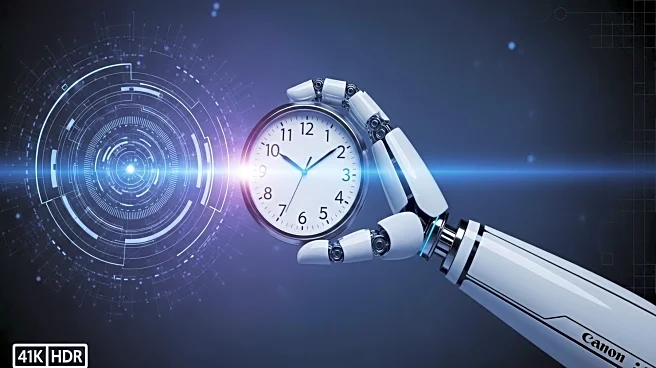What is the story about?
What's Happening?
Dario Amodei, CEO of Anthropic, has reiterated warnings about the rapid advancement of artificial intelligence and its potential to cause mass unemployment. Speaking at the AI+ DC Summit, Amodei emphasized that AI technology is progressing quickly and has already begun replacing jobs. He highlighted the possibility of AI eliminating half of entry-level, white-collar jobs and increasing unemployment rates significantly in the next few years. Amodei suggested that government intervention might be necessary to support people in adapting to the AI revolution, potentially through taxing AI companies' gains. Despite some skepticism about his warnings, Amodei insists that many underestimate AI's impact on the job market.
Why It's Important?
Amodei's warnings underscore the transformative impact AI could have on the labor market, particularly in entry-level positions. As AI technology continues to evolve, industries may face significant disruptions, leading to job displacement and economic challenges. The potential for widespread unemployment raises concerns about social and economic stability, prompting discussions on the need for policy interventions to mitigate negative effects. Amodei's call for government action highlights the importance of proactive measures to ensure a smooth transition for workers affected by AI advancements. The situation also reflects broader debates about the balance between technological progress and its societal implications.
What's Next?
The ongoing development of AI technology will likely continue to influence labor markets, necessitating adaptive strategies from both businesses and policymakers. Governments may explore regulatory frameworks and support systems to address potential job losses and ensure equitable distribution of AI-driven economic gains. As AI capabilities expand, industries may need to invest in reskilling and upskilling programs to prepare workers for new roles. The discourse around AI's impact on employment will remain a critical topic, with stakeholders closely monitoring developments and advocating for responsible innovation.
Beyond the Headlines
Amodei's warnings highlight ethical considerations in AI development, particularly regarding its impact on employment and economic inequality. The potential for AI to exacerbate existing disparities calls for careful consideration of its deployment and regulation. The situation also raises questions about the role of AI companies in shaping public perception and policy discussions, as leaders like Amodei navigate the balance between innovation and responsibility. As AI technology becomes more pervasive, ensuring its benefits are shared broadly and equitably will be crucial for fostering sustainable growth and societal well-being.
















